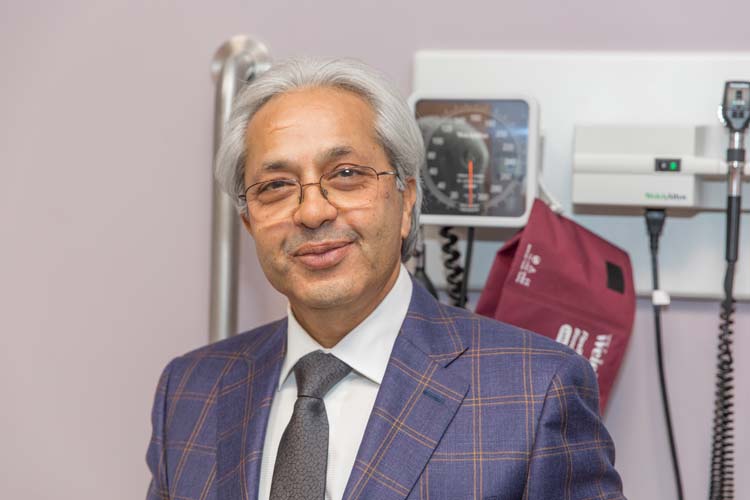
“Reefer Madness,” “The Assassin of Youth,” “The Devil’s Weed” and “The Terrible Truth” were all faux documentary films made from the mid-1930s through the 1950s. They were often force-fed to students in high school classrooms across the country.
The common thread through all of them was that using marijuana would inevitably lead to hard drugs, desolation, degradation and, inevitably, death.
Oops!
Today it has become clear that a physician’s prescription pad can be far more lethal than anything those early movie-mogul-wannabes could invent about marijuana.
Welcome to the opioid crisis of the 2000-teens.
Dr. Harish Sadhwani of the Quality Health Care & Wellness Institute in Wabasso puts his view bluntly. “Prescription painkillers,” says Sadhwani, “are far more likely than marijuana to lead to drug abuse.”
“When they were making [those] marijuana madness movies,” Sadhwani continues, “they were saying marijuana will lead to heroin. Well, there’s no evidence to show that ever happened to anybody.”
More to the point, according to Sadhwani, as a country “we are over-utilizing opioids.” Big time. And dangerously, too.
Prescription opioids are responsible for what is now officially the deadliest drug overdose epidemic in U.S. history.
In 2002 the National Institutes of Health estimated just under 11,000 people in this country died from opioid overdoses.
By 2015, according to the Washington Post, that figure topped the 52,000 mark: an all-time record.
The New York Times, however, reported just last week that, once all the statistics are in, overdose deaths for 2016 will exceed 60,000.
“Deaths from prescription drug overdoses,” says the Times, “rose sharply in the first nine months of 2016,” and the National Center for Health Statistics says that “overdose deaths reached a record of 19.9 per 100,000 population in the third quarter” of 2016, as opposed to 16.7 per 100,000 in 2015.
Most indications are that those numbers are continuing to climb.
Among the most commonly-abused prescription opioids are Oxycontin or Oxycodone, Vicodin, Perocet and Opana ER.
Indeed, just this June the FDA took the unprecedented step of requesting drug maker Endo Pharmaceuticals stop selling its Opana ER altogether after an appointed panel of independent scientists declared “the benefits of this drug no longer outweigh its risks,” according to National Public Radio.
All the above opioids, as well as hydrocodone, codeine, morphine and fentanyl, can lead to very real physical dependence, uncontrollable cravings and even the inability to function without those drugs.
In other words, precisely the same behaviors those “Reefer Madness” movies of the 1930s and beyond ascribed to marijuana. But because prescription opioids are manufactured by a wide range of large, modern pharmaceutical companies, many people assume they are harmless.
They’re not.
Asked if he sees signs of opioid addiction in Wabasso and Sebastian, the normally calm and easy-going Sadhwani almost bristles. “Oh, yes. Absolutely I do. Absolutely, I do.” In fact, he says he’s seen too many cases of what’s called “Doctor Shopping” or “Pill Prospecting” as people looking for prescription opioids try to convince a doctor they don’t know to write them a prescription.
Perhaps paradoxically – and perhaps not – Dina Fine Maron, a health and medicine editor at Scientific America, writes, “States with [legal] medical marijuana have fewer opioid overdose-related deaths than states without medical marijuana.”
So much for marijuana being “The Devil’s Weed.”
Sadhwani, of course, is keenly aware that many patients do – from time to time – need the kind of strong, effective pain relief opioids can offer. Yet he immediately points to several other classes of drugs outside the opioid category which he feels can provide that relief with far fewer risks. He adds, “When someone is in genuine pain and it is prescribed, [opioids are] fine,” but he freely admits he monitors those patients’ use of prescribed opioids very carefully.
Dr. Harish Sadhwani can be reached at the Quality Health Care & Wellness Institute and its adjacent urgent care center at 8701 U.S. Highway One in Wabasso. The phone number is 772-228-8480.



